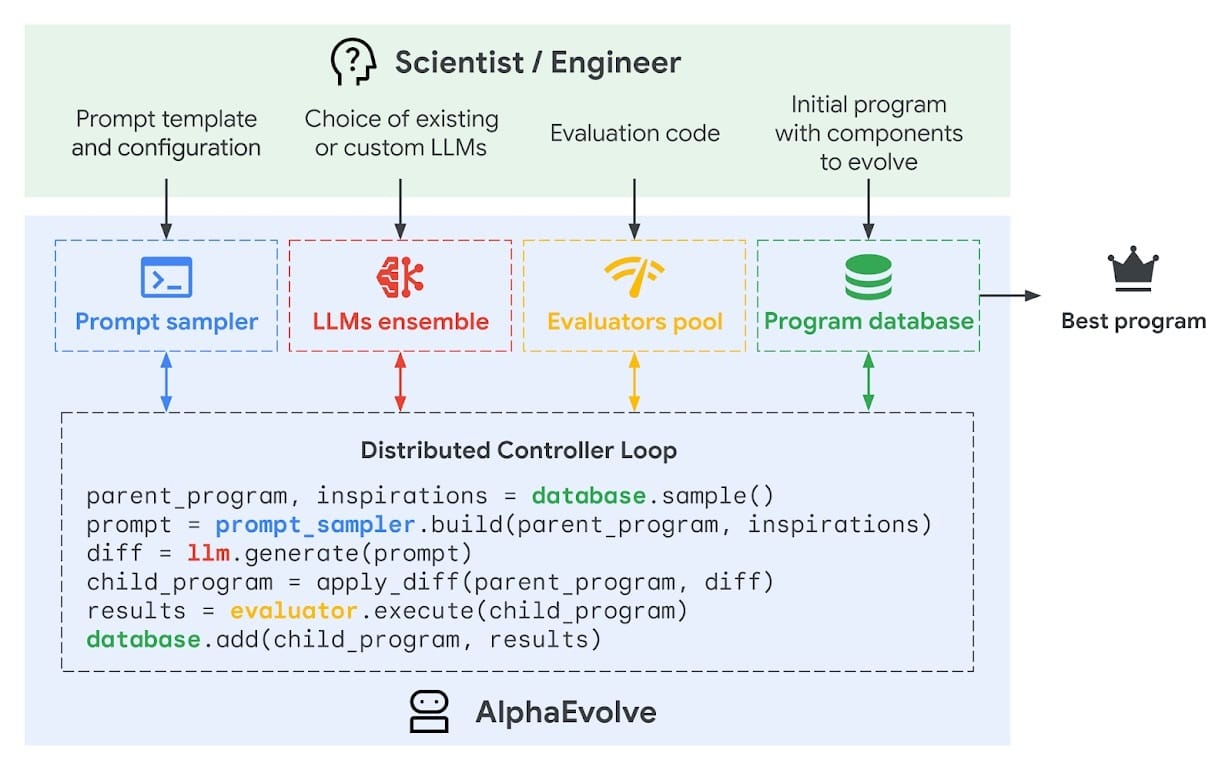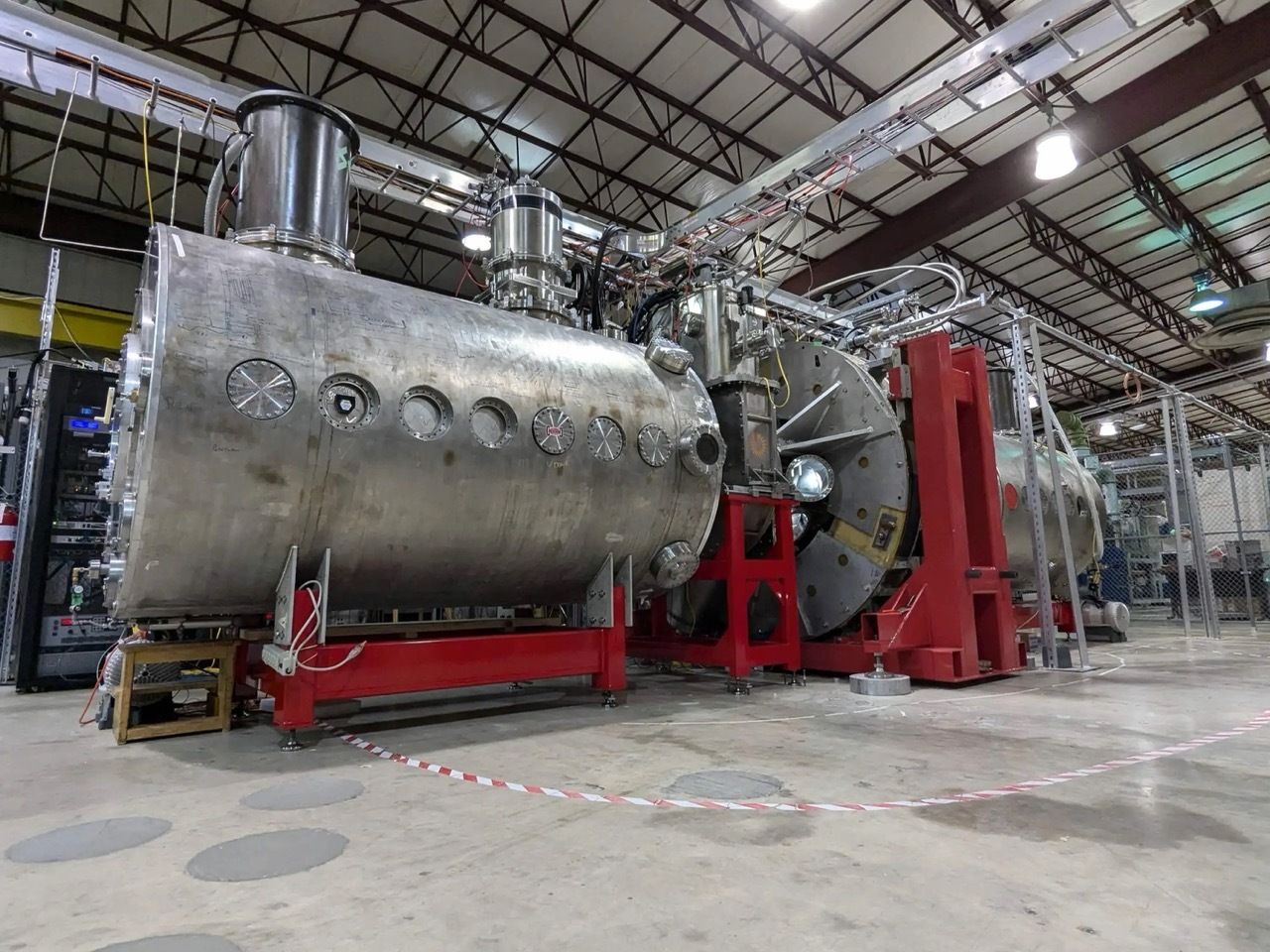
Welcome to this edition of Loop!
To kick off your week, I’ve rounded-up the most important technology and AI updates that you should know about.
HIGHLIGHTS
Why GM’s new battery technology could lead to cheaper EVs
OpenAI’s new Codex agent
Realta Fusion’s work on building their own reactors
… and much more
Let's jump in!


1. GM’s new battery technology could lead to cheaper EVs
General Motors has revealed a new battery chemistry called lithium-manganese-rich (LMR), which it claims will significantly reduce costs and still match the driving range of today’s technology.
Cobalt and nickel are quite scarce, but are necessary for the batteries that we currently rely on. With the new LMR cells, we only need a small amount of these minerals and the more abundant manganese is used instead.
Previously, there were hurdles to commercialising manganese-rich batteries. These batteries often suffered from rapid degradation, but GM believes it has solved this problem through experimenting with different materials and improving the manufacturing process.
It’s expected that the new technology will lead to significant cost savings, which will allow GM to build battery packs with over 50% fewer parts.
If GM is right about LMR batteries, it makes sense that they will only be used for entry-level vehicles and the more expensive NMC (which we use today) is used for vehicles that need longer range and more energy density.
Production is expected to begin in 2028 and this could be a real game-changer for the market, which is crying out for ultra-cheap EVs that can compete with internal combustion engines - especially as the cost-of-living is becoming a bigger problem in Western countries.

2. Sam Altman wants ChatGPT to remember “your whole life”
This is your weekly reminder that tech executives are incredibly out of touch with the general public, who are nervous about the impact of AI on society and don’t like these ideas.
At a recent event, OpenAI’s CEO envisioned that a highly personalised model could document and remember everything in your life - including all your conversations, books you’ve read, emails that have been sent, and any other information that’s important.
Sam Altman also said that young people are using ChatGPT as a life advisor, who they often consult before making major decisions.
While that might occasionally be true, Altman is probably overstating how his AI tool is being used by the general public - and for good reason, as it helps him to raise the hundreds of billions he needs to build massive data centres and power future AI models.
But if you stop a random person on the street and ask if they want an AI company to remember their whole life, they’d be horrified at the idea.
While we could benefit from an AI that analyses thousands of life experiences and gives us new insights or ideas, there are huge trust issues with Big Tech companies and what they would do with such personal information.
Or, the information could be stolen by criminals and then used to blackmail millions of people.
This serves as a good reminder that while executives at these top companies are worth listening to, they’re incredibly distant from the average person and can become fixated on ideas that no one actually wants.

3. The Nuclear Company raises $51 million to develop huge reactor sites
The startup aims to develop advanced nuclear reactors, but they aim to keep costs low by basing them on existing designs - and by testing the technology at sites that already have planning permission.
It’s a significant amount of funding and comes at a critical time, as major tech companies are struggling to secure reliable and sustainable power for their data centres.
As artificial intelligence is integrated into more products, electricity demand will surge dramatically over the next decade.
This has forced top tech companies - such as Microsoft, Google, and Amazon - to sign deals worth hundreds of millions and agree to use nuclear power.
But given the regulatory requirements, most industry analysts don’t expect the startup’s reactor to come online until 2030.

4. Fortnite players can now speak with Darth Vader, thanks to Generative AI
Over the weekend, thousands of players have been interacting with the character - which can instantly respond to your voice and answer questions.
As you’d expect, players have tried to push the technology to the limit. They’ve asked for his thoughts on world events and even what Darth Vader’s order is at McDonald’s - apparently, it’s a “chicken selects meal, with large fries and a Coca Cola drink”. Who knew?
All of this was made possible by Generative AI. To create Vader’s voice, Disney’s team used the Flash v2.5 model from ElevenLabs. While it can sound pretty monotone, the voice is spot on.
An AI model is being used to write Darth Vader’s response, but also ensure that it uses the same terminology that the character is famous for. Again, it did a pretty good job and Google's Gemini 2.0 Flash was used to make this happen.
Unfortunately, the character has gone viral for using the occasional swear word - which is surprising, as you’d expect that a list of banned words would be used to prevent that.
It’s a really interesting way to use Generative AI and, if the game designers can limit the bad behaviour, it could open up opportunities for other brands to collaborate with Fortnite and “bring them to life” in the same way.

5. Cohere is pivoting to use AI for market research
The AI startup has acquired Ottogrid, as it starts to invest in AI models that can conduct market research.
Prior to the acquisition, Ottogrid was building tools for enterprise customers and its platform could automate some research tasks.
It follows news that Cohere, which are competing with OpenAI and Anthropic, have missed their revenue projections by 85%.
Despite this, their annual revenues have reached $100 million and the company is focusing on customers in the healthcare, government, and finance sectors.
It’s likely that their future tool will focus on the finance sector and grow from there, as Ottogrid’s platform can already enrich sales leads data and extract insights about key competitors.

OpenAI launches an AI agent that can code

OpenAI has launched a research preview of Codex, an AI agent that’s optimised for software engineering tasks. Codex runs in a sandbox environment and can integrate with GitHub to access your code.
The AI agent can write features, fix bugs, answer questions about codebases, and run tests - taking anywhere from one to 30 minutes per task.
Access to Codex is initially being rolled out to ChatGPT Pro, Enterprise, and Team subscribers. But the company plans to expand access to Plus users soon.
Some of the initial reviews are mixed, as the tool can struggle to understand some requests - or it can “think” for 50 seconds and then decide not to complete the task.
It’s not the ground-breaking tool that is being claimed, but it’s definitely useful when it works. To get the most out of it, you need to have very clear prompts and be specific about what you expect to happen.
Otherwise, the AI model can go-off and make those decisions for you. Sometimes that can lead to new ideas, but in most cases it just wastes your time (and money).
For now, I think this will boost productivity for some developers - but most code will still need to be written and fixed manually. We haven’t quite reached the point where we can rely on these tools 100% and anyone who claims otherwise is not telling you the truth.

DeepMind’s AlphaEvolve can solve math and science problems

Google DeepMind has developed AlphaEvolve, a new AI system that combines the power of large language models and automated evaluators.
The tool is now being used by Google to discover new algorithms and then optimise them.
AlphaEvolve uses both Gemini Flash and Gemini Pro to propose new algorithm solutions, which are then verified and scored by automated evaluation metrics.
It’s very similar to DeepMind’s AlphaGeometry tool, which was announced last year and also used LLMs to generate solutions that solve geometry problems - with evaluators then used to pick the best idea.
According to Google, the system has already made improvements to their data centres and AlphaEvolve has even been used to design new hardware.
Although, it’s unlikely that the tool was used extensively - as it takes a lot of time to try and integrate these tools into large workflows.
Instead, it seems like Google’s team have used it within very small parts of the design process. But that doesn’t take away from their achievement at all.
This is a really innovative idea and it could be applied to other sectors, especially if they can eek more performance out of the system and keep costs low for businesses.
If it works well, it could have a huge impact on how companies manage their logistics operations - or maybe even their manufacturing processes.
DeepMind will allow some academic researchers to test the tool and they’re also exploring how it can be made more widely available.

📈 OpenAI's enterprise adoption is speeding up, while competitors fall behind
🔥 Trump sacks Copyright Office director after a report questioned AI training
🪵 InventWood is set to mass-produce wood that’s stronger than steel
🛑 OpenAI's Stargate project is struggling due to US tariffs
📉 Study finds that improvements in “reasoning” AI models may slow soon
🤝 AWS starts $5 billion partnership with Saudi Arabia-backed Humain
❓ xAI's safety report has not been published, despite promises
📝 AI notetaking app Granola raises $43 million, valued at $250 million
🔊 Stability AI releases an audio generator that can be run on your phone
⚖️ Anthropic's lawyer had to apologise after Claude made up a legal quote
🎬 Moonvalley raises $53 million for its video generator
🏙️ OpenAI's planned data centre in Abu Dhabi would be bigger than Monaco



Realta Fusion
Realta Fusion, a startup that spun out of the University of Wisconsin three years ago, has just raised $36 million in a Series A funding round.
The company plans to use the money to complete the design of its Anvil prototype reactor. Ultimately, the goal is to be "shovel ready" and prepared to build the reactor by the end of the investment period.
Initially, they plan to build power plants that can supply power at $100 per megawatt-hour. As they begin to refine the technology, they hope that price can be lowered to around $40 per megawatt-hour.
For context, the state of New York has recently seen electricity prices at over $154 per megawatt-hour - so Realta’s reactor could help to keep those costs down
Interestingly, Realta is one of several fusion startups that have emerged in Wisconsin in the last few years - including Type One Energy, which is backed by Bill Gates.
If you want to learn more about Realta and their fusion reactor design, I’ve included a link below.
This Week’s Art

Loop via ChatGPT’s image generator

We’ve covered quite a bit this week, including:
GM’s new battery technology and how it could lead to cheaper EVs
Why Sam Altman wants ChatGPT to remember “your whole life”
The Nuclear Company’s plans to develop huge nuclear reactors
How Fortnite made an AI Darth Vader
Cohere’s focus on using AI for market research
OpenAI’s new Codex agent
How DeepMind has used AlphaEvolve to solve math problems
And Realta Fusion’s work on building their own reactors
If you found something interesting in this week’s edition, please feel free to share this newsletter with your colleagues.
Have a good week!
Liam

Share with Others
If you found something interesting in this week’s edition, feel free to share this newsletter with your colleagues.
About the Author
Liam McCormick is a Senior AI Engineer and works within Kainos' Innovation team. He identifies business value in emerging technologies, implements them, and then shares these insights with others.


